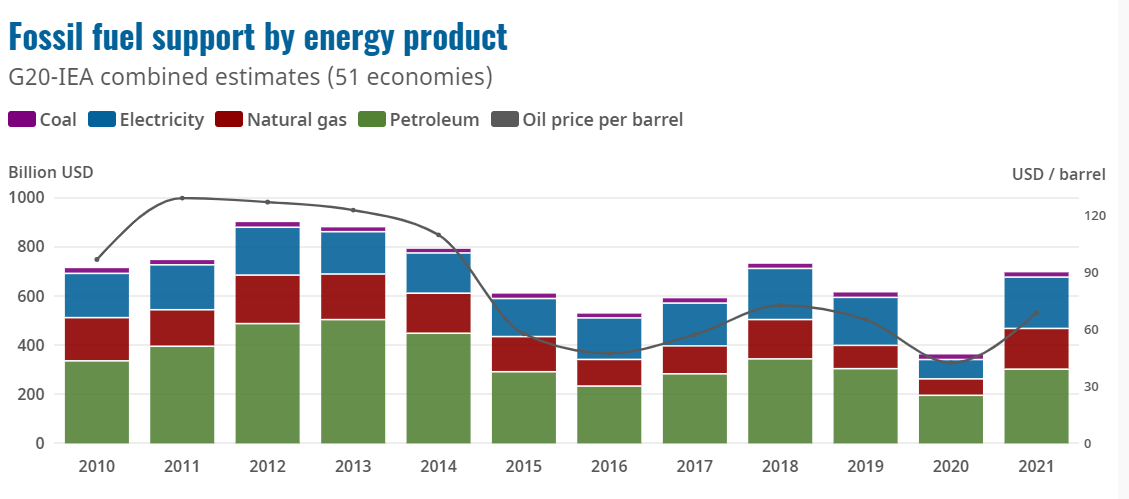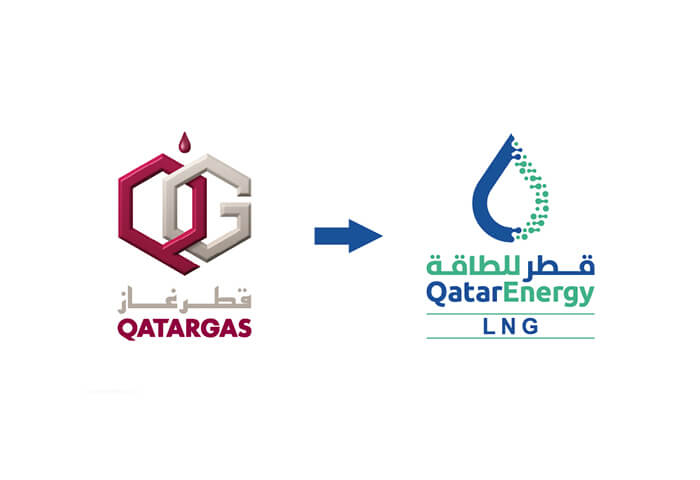A new analysis by the Organisation for Economic Co-operation and Development (OECD) and the International Energy Agency (IEA) notes a steep increase in the production and consumption of coal, oil and natural gas in major economies in 2021. The new data has shown that overall government support for fossil fuels in 51 countries worldwide almost doubled to $697.2 billion in 2021, from $362.4 billion in 2020, as energy prices rose with the rebound of the global economy.
The report also notes that many countries are struggling to balance longstanding commitments to phase out inefficient fossil fuel subsidies with efforts to protect households from surging energy prices.
“Russia’s war of aggression against Ukraine has caused sharp increases in energy prices and undermined energy security. Significant increases in fossil fuel subsidies encourage wasteful consumption, though, while not necessarily reaching low-income households,” OECD Secretary-General Mathias Cormann said.
“We need to adopt measures which protect consumers from the extreme impacts of shifting market and geopolitical forces in a way that helps keep us on track to carbon neutrality as well as energy security and affordability.”
Global energy consumption rose by 5.8% in 2021, exceeding pre-pandemic levels as economies revved up activity, with significant growth in renewable energies slowing fossil fuel use, according to a benchmark report by BP in June. As per Statista, nearly 17,000 terawatt hours of electricity worldwide were generated using fossil fuels in 2021. This was an increase of around 900 terawatt hours compared to the previous year. The global fossil fuel share in power generation amounted to 61.75% in 2021, with the majority derived from coal-fired power plants.
The OECD and IEA produce complementary databases that provide estimates of different forms of government support for fossil fuels. The current OECD-IEA combined estimates cover 51 major economies, spanning the OECD, G20, and 33 other major energy-producing and consuming economies, representing around 85% of the world’s total energy supply.

Source: OECD and IEA
OECD analysis of budgetary transfers and tax breaks linked to the production and use of coal, oil, gas and other petroleum products in G20 economies showed total fossil fuel support rose to $190 billion in 2021 from $147 billion in 2020. Support for producers reached levels not previously seen in OECD tracking efforts, at $64 billion in 2021 – up by almost 50% year-on-year and 17% above 2019 levels. Those subsidies have partly offset producer losses from domestic price controls as global energy prices surged in late 2021. The estimate of consumer support reached $115 billion, up from $93 billion in 2020.
The IEA produces estimates of fossil fuel subsidies by comparing prices on international markets with prices paid by domestic consumers that are kept artificially low using measures like direct price regulation, pricing formulas, border controls or taxes, and domestic purchase or supply mandates. Covering 42 economies, the IEA finds that consumer support increased to $531 billion in 2021, more than triple its 2020 level, driven by the surge in energy prices.
The OECD and IEA have consistently called for the phasing out of inefficient fossil fuel support and the re-direction of public funding toward the development of low-carbon alternatives alongside improvements in energy security and energy efficiency. Subsidies intended to support low-income households often tend to favor wealthier households that use more fuel and energy and should therefore be replaced with more targeted forms of support.









